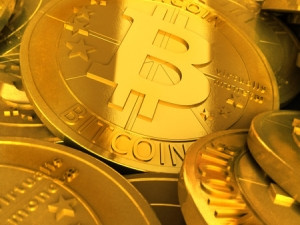
Developing countries from Africa and Asia are rapidly adopting Bitcoin in a bid to circumvent steep bank charges when sending money abroad.
This is according to Bitcoin payment processor Bitwala which notes that when sending money abroad, local banks' models favour corporate profit over people's need and their own convenience over fast speeds.
Founded in 2012, Germany-based start-up Bitwala allows users to transfer euros over the Single Euro Payments Area payments using Bitcoin. Users must first download a Bitcoin wallet.
The start-up says for the majority of businesses and individuals in the developing world, foreign exchange remains a critical inhibitor to their success or sometimes access to basic food and medicine.
"While our early adopters have come from Europe and North America, more recently we have seen a steep adoption rate among users sending money to and from developing countries on the African and Asian continents," says J"org von Minkcwitz, CEO of Bitwala.
Transferring cash via a bank or money transfer operators like Western Union or MoneyGram can be costly. According to the Overseas Development Institute, the average charge to transfer $200 to Africa using traditional money transfer services is 12%.
Bitwala says in total, the number of sign-ups from developing countries is coming closer to those in the US and EU. Taken together, users from developing countries form approximately 30% of Bitwala's new sign-ups globally.
"Our daily Web site visits also reflect this growing trend. Bitcoin users in North African countries are a growing proportion of Bitwala's user base, making up 4.4% of visitors, up from historically 2% and surpassing Switzerland," says Von Minkcwitz.
"Banks charge a lot of fees and manipulate currency exchange rates to their advantage, resulting in a huge cost to customers all over the world," he notes.
According to Bitwala, at a cost of $4 billion per year, international transfers to Africa are the most expensive in the world. Furthermore, it notes, online and offline businesses continue to pay a steep price for transferring money abroad or even domestically as the majority of banks charge between 10%-19% on any transfers to, from and within African countries.
The start-up points out that while transferring money to South East Asia is cheaper than it is to Africa, banks and intermediaries doing so charge high enough fees that take away a significant amount of people's hard-earned money.
"Let's consider the case of Jane, a hypothetical expat in Berlin who relies on banks and money transfer services to support her parents living in Beijing. She sends EUR500 to them regularly each month. As a customer of one of the European leading banks, it costs her a total of EUR47.7 each month to make that transfer. Over a year, this number rises to more than EUR570. If she were sending EUR2 500 per month - it would cost Jane a total of EUR1 441 per year just in transfer fees," Von Minkcwitz says.
He explains the recently leaked document from Santander, a major Spanish banking group, confirms the dangers of using banks.
In 2016, the bank made EUR585 million solely from international money transfers, making up 10% of all of its revenue. In addition to transfer fees, the bank also made another killing by controlling its foreign currency exchange which helped it earn EUR290 million, Von Minkcwitz says.
"Perhaps the most shocking part is that 80% of all global money transfers are still conducted via banks and conventional monetary transfer channels. Bitcoin offers a much more efficient method of sending money abroad. This is done by shortening the time involved in trade settlements and securing the best exchange rate.
"Most importantly, the strength of Bitcoin and the blockchain technology it relies on is that it allows you to send money across borders without paying the steep fees charged by traditional gatekeepers like Western Union, MoneyGram, Ria and others."
Share